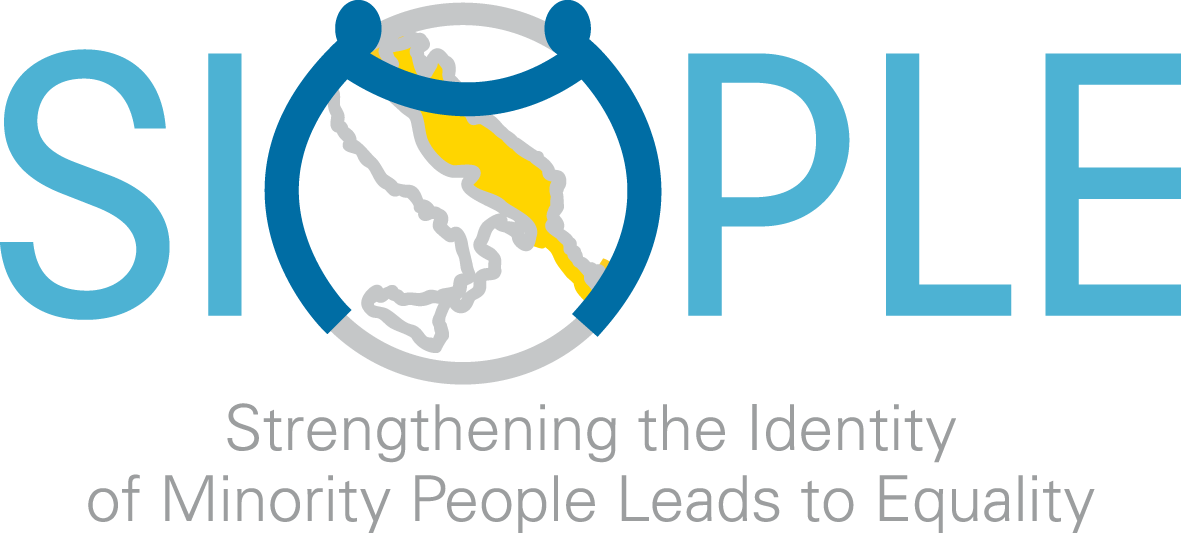Reasearch project box file
Protection of the new social rights: innovative services for people between social market and welfare mix
Research Team
The research is guided by Dr. Gabriella SAPUTELLI – Ph.D. in Constitutional Law and Constitutional European Law, in collaboration with PROGETTI SOCIALI s.r.l. Social Enterprise and the Faculty of Law (Department of Public Law) of Teramo University, within the Special Multiaxes Project “Reti per la conoscenza e l’orientamento tecnico-scientifico per lo sviluppo della competitività” (RE.CO.TE.S.S.C) financed by the OP E.S.F. Abruzzo 2007/2013 – Operative Plan 2007/2008
The project will end in December 2010
Background
Today contemporary age is often described as characterised by a “crisis of the welfare state”, linked to the progressive reduction of available financial resources and to a settlement of the current static system of social services, overloaded of bureaucratic constraints, which is not able anymore to meet the needs of the community. The lack of an adequate social protection has become particularly evident as a result of the social changes occurred in the last decades, which generated new needs by citizens and require innovative solutions, which must be targeted and effective.
Being hard to find adequate answers in the system of public services, have been triggered, within the social context, regulatory mechanisms to meet the needs in an informal way such as: the phenomenon of private caregivers, the social normalization of baby-sitting and house cleaning, the growing demand of socio-health workers for hospitalized patients, the placement of the immigrant workforce. In this way it has been configured a kind of customary welfare, in which citizens are seeking autonomously new solutions to urgent needs, which often come out through channels which are borderline, when not even outside, current laws.
The black market for social services to people is a current and recognized reality at all levels of civil society (see the recent initiatives for the amendment and regulation of the work of immigrant caregivers), which could crystallize as socially necessary as complementary to the ordinary services system, but at the same time presents some serious and dangerous problems: lack of assurance about the quality of the performance; problems for citizens to safely access to this parallel social market; reduced protection schemes for service providers; feeding of criminal exploiting. The black market for social services to people is a current and recognized reality at all levels of civil society (see the recent initiatives for the amendment and regulation of the work of immigrant caregivers), which could crystallize as socially necessary as complementary to the ordinary services system, but at the same time presents some serious and dangerous problems: lack of assurance about the quality of the performance; problems for citizens to safely access to this parallel social market; reduced protection schemes for service providers; feeding of criminal exploiting. The black market for social services to people is a current and recognized reality at all levels of civil society (see the recent initiatives for the amendment and regulation of the work of immigrant caregivers), which could crystallize as socially necessary as complementary to the ordinary services system, but at the same time presents some serious and dangerous problems: lack of assurance about the quality of the performance; problems for citizens to safely access to this parallel social market; reduced protection schemes for service providers; feeding of criminal exploiting. The black market for social services to people is a current and recognized reality at all levels of civil society (see the recent initiatives for the amendment and regulation of the work of immigrant caregivers), which could crystallize as socially necessary as complementary to the ordinary services system, but at the same time presents some serious and dangerous problems: lack of assurance about the quality of the performance; problems for citizens to safely access to this parallel social market; reduced protection schemes for service providers; feeding of criminal exploiting. The black market for social services to people is a current and recognized reality at all levels of civil society (see the recent initiatives for the amendment and regulation of the work of immigrant caregivers), which could crystallize as socially necessary as complementary to the ordinary services system, but at the same time presents some serious and dangerous problems: lack of assurance about the quality of the performance; problems for citizens to safely access to this parallel social market; reduced protection schemes for service providers; feeding of criminal exploiting. The black market for social services to people is a current and recognized reality at all levels of civil society (see the recent initiatives for the amendment and regulation of the work of immigrant caregivers), which could crystallize as socially necessary as complementary to the ordinary services system, but at the same time presents some serious and dangerous problems: lack of assurance about the quality of the performance; problems for citizens to safely access to this parallel social market; reduced protection schemes for service providers; feeding of criminal exploiting.
In line with the described changes, the Italian welfare system was initiated by a phase of gradual transformation that, despite the constitutional reform of Title V in 2001, finds, at the legislative level, its more comprehensive rule in the Law No 328/2000 Framework Law for the implementation of the integrated system of assistance and social services, which is set according to the logic of vertical subsidiarity (State - Regions - Social Setting Bodies) for what regards planning and financing policies, and according to the mechanisms of horizontal subsidiarity for the management of services to individuals, mostly assigned to the Third Sector (so-called welfare mix). The occurred changes are oriented to the affirmation of a welfare society, in which emerges the role of the third sector and social enterprises, but whose realization is still facing a variety of critical issues and gaps related to both the nature of actors operating in the non-profit sector and to the inefficiency of the system of accreditation of institutions for the provision of socio-health services (often interpreted as an “accreditation of the structure”, incapable of assessing the appropriateness of social provisions), with significant repercussions in quality of the delivered services.
The black market for social services to people is a current and recognized reality at all levels of civil society (see the recent initiatives for the amendment and regulation of the work of immigrant caregivers), which could crystallize as socially necessary as complementary to the ordinary services system, but at the same time presents some serious and dangerous problems: lack of assurance about the quality of the performance; problems for citizens to safely access to this parallel social market; reduced protection schemes for service providers; feeding of criminal exploiting. The black market for social services to people is a current and recognized reality at all levels of civil society (see the recent initiatives for the amendment and regulation of the work of immigrant caregivers), which could crystallize as socially necessary as complementary to the ordinary services system, but at the same time presents some serious and dangerous problems: lack of assurance about the quality of the performance; problems for citizens to safely access to this parallel social market; reduced protection schemes for service providers; feeding of criminal exploiting. The black market for social services to people is a current and recognized reality at all levels of civil society (see the recent initiatives for the amendment and regulation of the work of immigrant caregivers), which could crystallize as socially necessary as complementary to the ordinary services system, but at the same time presents some serious and dangerous problems: lack of assurance about the quality of the performance; problems for citizens to safely access to this parallel social market; reduced protection schemes for service providers; feeding of criminal exploiting. The black market for social services to people is a current and recognized reality at all levels of civil society (see the recent initiatives for the amendment and regulation of the work of immigrant caregivers), which could crystallize as socially necessary as complementary to the ordinary services system, but at the same time presents some serious and dangerous problems: lack of assurance about the quality of the performance; problems for citizens to safely access to this parallel social market; reduced protection schemes for service providers; feeding of criminal exploiting. The black market for social services to people is a current and recognized reality at all levels of civil society (see the recent initiatives for the amendment and regulation of the work of immigrant caregivers), which could crystallize as socially necessary as complementary to the ordinary services system, but at the same time presents some serious and dangerous problems: lack of assurance about the quality of the performance; problems for citizens to safely access to this parallel social market; reduced protection schemes for service providers; feeding of criminal exploiting. The black market for social services to people is a current and recognized reality at all levels of civil society (see the recent initiatives for the amendment and regulation of the work of immigrant caregivers), which could crystallize as socially necessary as complementary to the ordinary services system, but at the same time presents some serious and dangerous problems: lack of assurance about the quality of the performance; problems for citizens to safely access to this parallel social market; reduced protection schemes for service providers; feeding of criminal exploiting. The black market for social services to people is a current and recognized reality at all levels of civil society (see the recent initiatives for the amendment and regulation of the work of immigrant caregivers), which could crystallize as socially necessary as complementary to the ordinary services system, but at the same time presents some serious and dangerous problems: lack of assurance about the quality of the performance; problems for citizens to safely access to this parallel social market; reduced protection schemes for service providers; feeding of criminal exploiting. The black market for social services to people is a current and recognized reality at all levels of civil society (see the recent initiatives for the amendment and regulation of the work of immigrant caregivers), which could crystallize as socially necessary as complementary to the ordinary services system, but at the same time presents some serious and dangerous problems: lack of assurance about the quality of the performance; problems for citizens to safely access to this parallel social market; reduced protection schemes for service providers; feeding of criminal exploiting. Objectives
The project aims at developing innovative solutions for services for the protection of new social rights to people, based on the enhancement of social enterprises as modern and specialized providers able to match the changing emerging needs with potential local resources, able to renew the current welfare mix system through a flexible and effective tool of social intervention for a complex reality.
Methodology
Starting necessarily from a multi-disciplinary approach, able to tap into different fields (personal rights, governance systems, public-private partnership, social sciences, management of social services, sociology), we will study the response options to emerging social needs, within legal and administrative already existing and formalized public arrangements, interpreting innovative solutions also in the light of the development of best practices, at European level, of horizontal subsidiarity for the management of social services
Expected results
From the research product – a methodological tool for designing and managing modern social services in response to the emerging unmet needs of citizens and compatible with the existing legal framework – they are expected, therefore, the following results:
-
a new modus operandi in designing services that give concreteness to a new welfare mix based on the principles of participation and joint planning among public policy makers of social planning and local actors, and on the renewed flexibility, quality, and accessibility of the social market;
-
the availability of methods for the design, supervision and management of complex systems, composed of heterogeneous elements and in relation one to each other, in favour of the Abruzzo social enterprises involved in the processes of planning and delivering of personal services;
-
the development of suitable tools to anticipate planning solutions based on the principles of sharing among a multiplicity of public and private actors.
 contacts
contacts
















